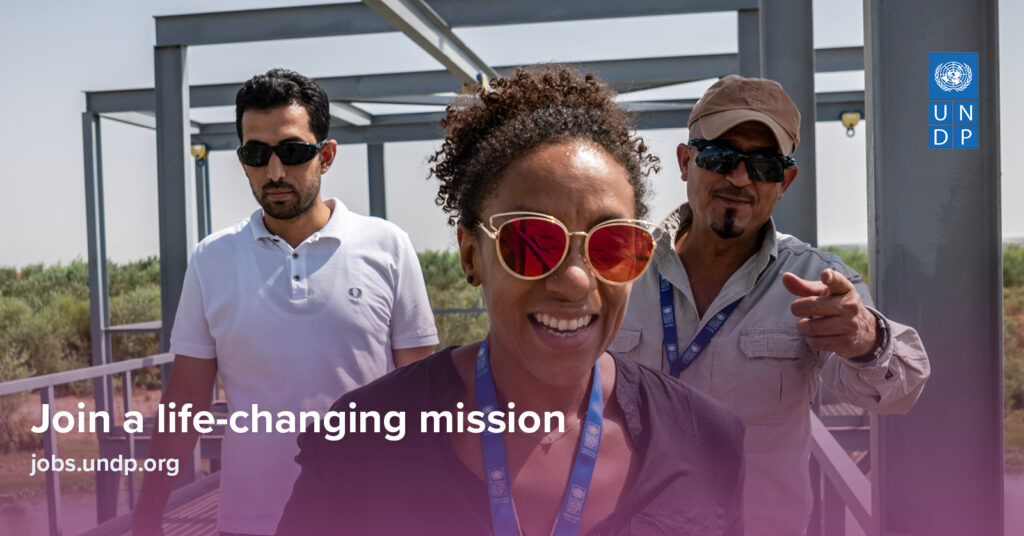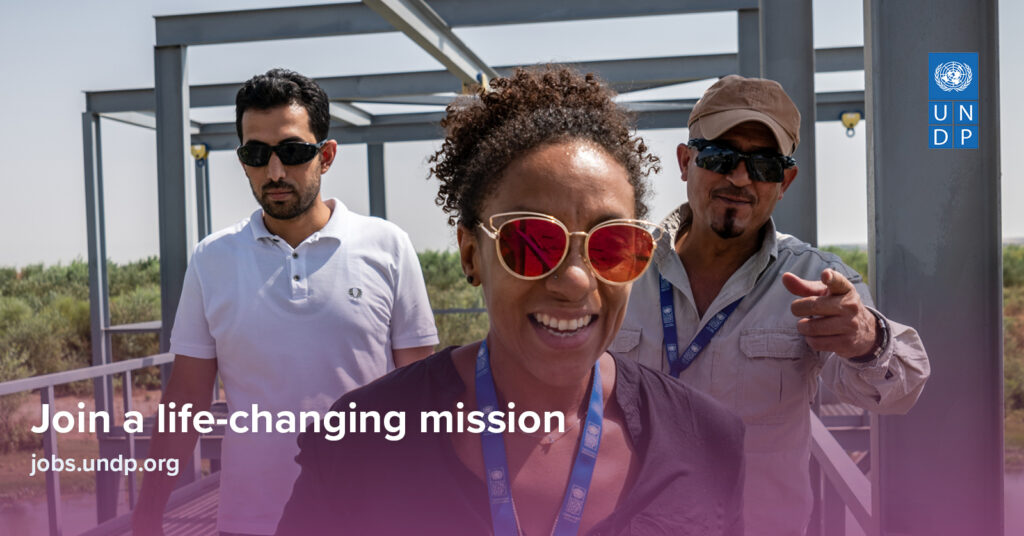Collaboration for Complex environmental Challenges Labs (C3Labs) Intern – Home-Based
Background UNDP is the knowledge frontier organization for sustainable development in the UN Development System and serves as the integrator for collective action to realize the Sustainable Development Goals (SDGs). UNDP’s policy work carried out at HQ, Regional and Country Office levels offers a spectrum of deep local knowledge to cutting-edge global perspectives and advocacy. In this context, UNDP invests in its Global Policy Network (GPN), a network of field-based and global technical expertise across a wide range of knowledge domains and in support of the signature solutions and organizational capabilities envisioned in UNDP’s Strategic Plan. Within the GPN, the Bureau for Policy and Programme Support (BPPS) has the responsibility for developing all relevant policy and guidance to support the results of UNDP’s Strategic Plan. BPPS staff provide technical advice to Country Offices, advocates for UNDP corporate messages, represent UNDP at multi-stakeholder fora including public-private, government and civil society dialogues, and engage in UN inter-agency coordination in specific thematic areas. UNDP’s 2022-2025 Strategic Plan highlights our continued commitment to eradicating poverty, accompanying countries in their pathways towards the SDGs and working towards the Paris Agreement. As part of the Global Policy Network in the Bureau for Policy and Programme Support, UNDP’s Nature, Climate Change, Energy, and Waste Hubs promote and scale up integrated whole-of-governance approaches and nature-based solutions that reduce poverty and inequalities, strengthen livelihoods and inclusive growth, mitigate conflict, forced migration and displacement, and promote more resilient governance systems that advance linked peace and security agendas. BPPS work with governments, civil society, and private sector partners to integrate nature, climate, energy and waste related concerns into national and sector planning and inclusive growth policies, support country obligations under Multilateral Environmental Agreements, and oversee the implementation of the UN’s largest portfolio of in-country programming nature, climate change, energy, and waste. This multi-billion-dollar portfolio encompasses: Biodiversity and Ecosystem Services including forests; Sustainable Land Management and Desertification including food and commodity systems; Water and Ocean Governance including SIDS; Climate Change Mitigation and Adaptation; Sustainable Energy; Extractive Industries; Chemicals and Waste Management; Environmental Governance and Green/Circular Economy; and SCP approaches. This work advances crosscutting themes on innovative finance, , capacity development, human rights, gender equality, health, technology, South-South learning and digital transformation. UNDP has developed its new Strategy for Food and Agricultural Commodity Systems (FACS) to focus its vision and enhance its support to transform FACS. FACS are fundamental to the sustainable development of the 170 countries UNDP supports. FACS are often the largest contributor to their economies; food and nutrition is fundamental for citizen health; and FACS have a key role to play in achieving the SDGs. Yet, FACS are in crisis and need to be radically transformed to become sustainable. UNDP, building on its experience, has for the first time consolidated its FACS support and vision into this Strategy. The challenges and need for change related to FACS have been highlighted by a suite of reports by many research and international organizations and think tanks. The production practices and consumption patterns of food and agricultural commodities are taking these systems on an unsustainable trajectory with multiple impacts on human development, the environment and economies; from ecosystem degradation, conflicts over land and natural resources, reduced capacity and resilience to climate and other shocks, persistent poverty, food insecurity and related people displacement and migration, to malnutrition including overweight and obesity. There is a clear need to work in a systemic and integrated manner to transform the FACS towards sustainability. UNDP´s Vision for FACS 2030 is, through partnerships, to transform food and agricultural commodity systems into resilient; equitable; healthy, inclusive; environmentally, socially and economically sustainable systems. Working on FACS will contribute to not only recovery from the COVID19 crisis, by creating sustainable and resilient livelihoods for many along the FAC supply chains, but also to preventing further zoonoses from emerging in the future. This will require a change in the current paradigm of agricultural production focusing on maximizing productivity to a new paradigm based on diversified agroecological systems which work simultaneously on achieving economic, environmental, social, and health outcomes; with smallholders as a key part of the solution in their role as the engine of economic development. A FACS practice has been established within UNDP´s Nature, Climate and Energy team, which is tasked to support UNDP Country Offices with FACS related challenges in a way that is aligned with UNDP´s FACS strategy. The FACS Team has recently launched a new initiative: ‘C3 Labs – Collaboration for Complex Challenges: addressing the food-biodiversity-climate nexus.’ C3 Labs aims to facilitate greater collaboration between government agencies, development agencies, donors, development finance institutions, the private sector, civil society and research institutions. With the support of the Global Environment Facility (GEF) Innovation Window funding the project will: Strengthen the evidence base on how to accelerate systemic, collaborative and adaptive approaches to address complex environmental challenges, focusing on the food-biodiversity-climate nexus to support greater integration of government and development sector programming across the NDCs, NBSAPs, and LDN targets, and connecting to national pathways for food systems transformation. Generate practical guidance on how to bridge the gap between the theories of collaboration and systems transformation and their real-world application. The initiative will: develop, prototype, iterate and evaluate a Collaboration Lab methodology applied to food-biodiversity-climate nexus challenges in two pilot countries; harvest and disseminate learnings through a global learning lab; and publish findings through a series of evidence-based recommendations, tools and guidance that can improve the GEF’s approach to program design and implementation, thereby enhancing the effectiveness and impact of GEF investments. UNDP FACS is seeking to recruit a “C3 Labs Intern” to support in the implementation of a range of activities for the launch of C3 Labs, reporting to the FACS Innovation Lead. Duties and Responsibilities Support to the C3 Labs Team in: Support coordination of the C3 Labs initiative, in particular ensuring coordination with core partners, country office(s) and the GEF. Preparation and organization of calls, webinars, virtual workshops; Preparation of presentations, slide deck; briefing notes, project proposals, meeting minutes
Collaboration for Complex environmental Challenges Labs (C3Labs) Intern – Home-Based Read More »


